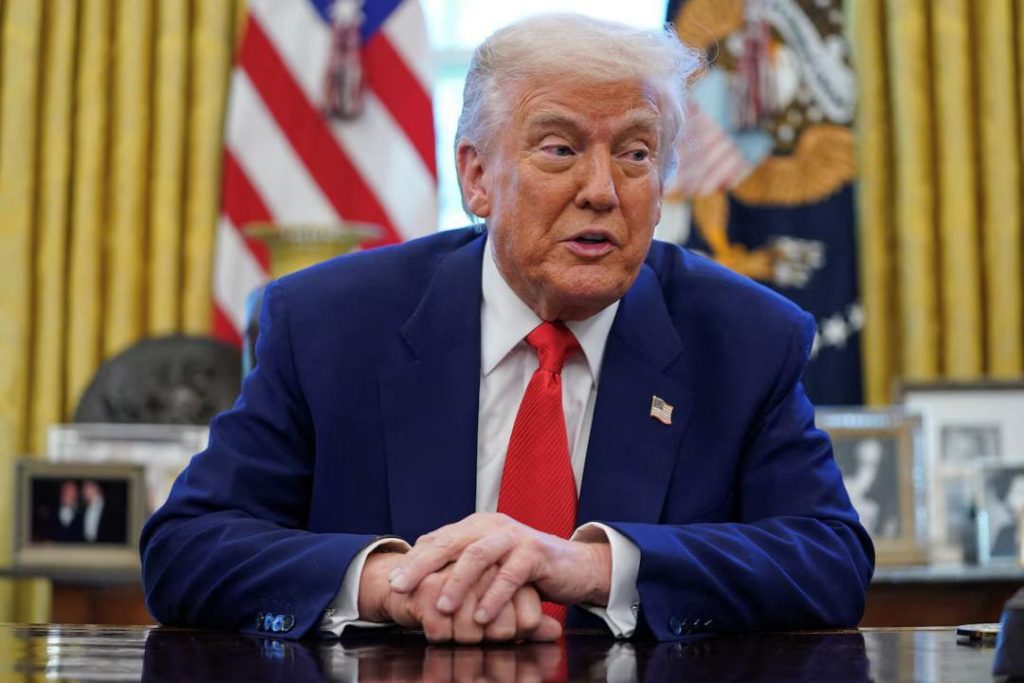
Total Reset Negotiated: Donald Trump on US & China Trade Talks
In a recent development, the United States and China have made significant progress in their trade talks, with US President Donald Trump describing the outcome as a “total reset negotiated in a friendly, but constructive manner.” The talks, which took place in Geneva, Switzerland, marked a crucial step towards resolving the long-standing trade tensions between the world’s two largest economies.
According to reports, Trump expressed his optimism about the outcome, stating, “We want to see, for the good of both China and the US, an opening up of China to American business.” This sentiment was echoed by Chinese officials, who welcomed the progress made and pledged to continue working towards a mutually beneficial agreement.
But what exactly does this “total reset” entail? And what are the implications for businesses, investors, and consumers on both sides of the Pacific? In this blog post, we’ll delve into the details of the trade talks and explore what this development means for the future of US-China relations.
Background: The US-China Trade Dispute
The trade dispute between the United States and China has been ongoing for several years, with tensions escalating in 2018 when the Trump administration imposed tariffs on over $250 billion worth of Chinese goods. China retaliated with its own tariffs on US goods, leading to a tit-for-tat escalation of tariffs that affected industries on both sides.
The dispute centered on several key issues, including China’s intellectual property practices, technology transfer requirements, and subsidies to state-owned enterprises. The US also accused China of unfair trade practices, such as forced technology transfer and currency manipulation.
The Geneva Talks: A New Era of Cooperation?
The Geneva talks marked a significant shift in the tone and approach taken by both sides. Instead of the usual rhetoric and posturing, the negotiations were characterized by a more collaborative and constructive atmosphere.
According to sources, the talks focused on specific issues, such as market access, intellectual property protection, and currency transparency. The US delegation, led by USTR Robert Lighthizer and Treasury Secretary Steven Mnuchin, reportedly made significant concessions on areas such as agricultural imports and pharmaceutical patents.
In return, China agreed to increase its purchases of US goods and services, including agricultural products, energy, and manufactured goods. The exact terms of the agreement are still unclear, but sources suggest that China may commit to purchasing up to $200 billion worth of US goods over the next two years.
What Does This Mean for Businesses and Investors?
The “total reset” negotiated in Geneva has significant implications for businesses and investors on both sides of the Pacific. For US companies, the agreement could lead to increased access to the Chinese market, reducing the costs and complexities associated with doing business in China.
For Chinese companies, the agreement may provide greater certainty and stability in their dealings with US counterparts. This could lead to increased investment and trade between the two countries, as well as greater cooperation on issues such as technology and innovation.
For investors, the agreement may lead to increased confidence in the US and Chinese economies, potentially driving up stock prices and stimulating economic growth.
Challenges Ahead: Ensuring Compliance and Enforcing the Agreement
While the Geneva talks represent a significant step forward in US-China trade relations, there are still challenges ahead. To ensure the success of the agreement, both sides will need to demonstrate a commitment to compliance and enforcement.
The US will need to ensure that China follows through on its commitments, particularly with regards to increasing its purchases of US goods and services. China, in turn, will need to demonstrate greater transparency and accountability in its trade practices and intellectual property protection.
Conclusion: A New Era of Cooperation?
The “total reset” negotiated in Geneva marks a significant turning point in US-China trade relations. While the agreement is not without its challenges, it represents a crucial step towards resolving the long-standing trade tensions between the two countries.
As both sides work to implement the agreement and address the remaining issues, it is clear that the stakes are high. The success of the agreement will depend on the willingness of both sides to work together, demonstrate greater transparency and accountability, and commit to a more cooperative approach to trade.
As the world watches this new era of cooperation unfold, one thing is clear: the future of US-China trade relations will be shaped by the actions taken by both sides in the coming months and years.






